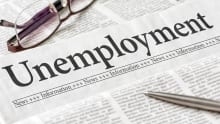Here is all you need to know about remote job hiring

Even while more businesses are asking employees to return to the office, the need for remote workers is growing. If you type in "remote" into any of the major job search engines, thousands of results from various industries, at all levels of experience, will appear.
The University of the Potomac, a US-based private university with career-oriented programmes in both online and in campus settings, discovered that the number of Google searches for "remote jobs hiring immediately" has increased by 262% since 2021.
At the same time, searches for “work when you want remote jobs” grew by 556%, while searches for “remote positions” increased by 85% and reached an all-time high.
To help those seeking remote working, Elise Alva, Director of Career Services at the University, provides answers to the most googled questions related to remote job hirings.
What skills should you include in your resume?
(Average of searches over the past 12 months: 5000)
Start by making it apparent on your resume that you are looking for remote opportunities. You can include skills that apply to practically all employment jobs, such as marketing, computer, teamwork, and critical thinking skills.
Nowadays, everyone searches online regarding potential hiring, so it might be best to include your resume on LinkedIn as it connects you with professionals worldwide and aids in your success.
While contact information like the city and address are important in traditional resumes, it might not be necessary to add a physical address when applying for a remote job because you will be working from home.
It might be good if you can highlight your desire for remote working in your professional summary, which is the most important part as it sets you apart from the other applicants.
Hard and soft skills must be covered, whereas as a team member, you must feel at ease using project management software, texting, and Zoom meetings. You can even add some software you may be familiar with, such as Asana, Zoom, Google Hangouts, and Slack.
Most companies want to hire someone who will build positive relationships with their colleagues remotely, so try adding some interpersonal skills such as emotional intelligence, communication, reliability, leadership, negotiation, openness to feedback, and empathy.
How do you list references in your resume?
(Average of searches over the past 12 months: 4300 )
A reference gives authority to your resume; therefore, it's preferable to provide a list of prior employers' contact information. In that way, companies that are more interested in what you have to offer could wish to contact the people on your reference list to learn more about your work performance, professionalism, and work ethic.
First, you need to determine how many references you will include, which depends on your career level. If you are first entering the job market, it is suggested to have three reference lists; however, if you are going for a senior position, you might want to consider having a broader list of references.
Asking for references from people you have supervised may raise a red flag for those reviewing your application, so it is advisable to ask your supervisors and co-workers instead.
What if you don't have any work experience, you could ask? The best thing to do in such a situation would be to include references from academic advisers, mentors, or even someone you met through volunteer work who has experience in the field you are applying for.
Choose a person who can speak to your abilities, skills, and qualifications because the employer will find it more credible if they know your close working relationship with you. Additionally, sending a reference list might not be necessary if the employer does not request one at the start of your application.
However, if they decide to hire you, they will undoubtedly request a list of references, so be ready for everything to land you the job you desire.
How to write a cover letter?
(Average of searches over the past 12 months: 79000 )
A prospective employer will want to read your cover letter after reviewing your resume because it impacts whether or not they decide to hire you. A cover letter has a good impact, especially for remote job applicants, since it gives a chance to show your personality and passion for the company.
It would be best if you create a memorable opening or attention-getter by sharing stories from your professional life while incorporating instances of relevant work you have completed or challenges you have resolved.
Even if you don’t have remote work experiences, you can use your cover letter to differentiate yourself from other candidates by highlighting soft skills which are relevant to remote work.
When writing a cover letter, the voice and tone are pretty crucial, and you may do this by first researching the company to help determine the tone you want to employ. The key to a good cover letter is honesty. If you suggest that you have a skill that you don't, it will reflect poorly on your application.
The conclusion should be like a call to action where you will want to give them a reason to contact you by suggesting that you are open to offering more information and looking forward to talking with them.
How to prepare for an interview?
(Average of searches over the past 12 months: 14000 )
Holding the interview online is one of the most challenging parts of a remote job search since you want to give them the best impression possible as if you are in person. Thus, being well-prepared is the key to performing well in an interview.
First, you need to make sure that your technology is working, such as the internet connection, webcam, microphone, and the platform where you will hold the meeting. Then you can change the background, reduce the background noise, and any distractions like the TV so that the focus is on the interviewer.
Write general questions that almost all employers ask, such as "Tell me a little about yourself and why do you want to work here," as the interviewer wants to know why you think you would be a good fit for their remote position. Next, research the organisation, objectives, and value proposition as the interviewer will want to know if you have attempted to learn more about the organisation, so be ready.
After doing your research, it might be best to write down some questions you can ask about the company's offerings, policies, and services. The secret to succeeding in this section is to practice articulating your qualities, abilities, experiences, and education.
Another benefit of online interviews is that you don’t need to commute, so it is best if you join earlier, showing the effort you are willing to put into the company from the beginning.
What questions should you ask in an interview?
(Average of searches over the past 12 months: 5200)
As you expect the potential employer to ask questions about you, the interviewer expects the same from you. By not asking any questions about the company, you show a lack of interest in knowing more about the company.
Below is a list of some potential questions you can ask in your first interview if you're unsure of what to ask:
- Can you tell me about the working culture of your company? This question demonstrates to the interviewer that you are curious to learn more about the activities and policies of the organisation.
- Which team will I be part of? By asking this question, the interviewer will grasp that you are interested in hearing more about your potential coworkers and show a positive attitude towards teamwork.
- What duties would I have on a daily basis if I were to work for this company? It demonstrates to the interviewer that you are eager and inquisitive about learning the responsibilities of the job for which you have applied.
What should you wear for your interview?
(Average of searches over the past 12 months: 12000 )
You need to leave the best possible impression on the interviewer because it's your first and most important interview. So, just because you are at home does not mean you can attend the meeting in your pajamas because your attire can affect the impression you create on the interviewer.
That’s why it is recommended to wear the same interview clothes as you would for a face-to-face interview. This would give you the impression that you were attending an in-person interview, boost your confidence, and have a favorable effect on how well you performed.
How to follow up after an interview?
(Average of searches over the past 12 months: 6500 )
How well the interview went relies on the tone, mimics, and length of the conversation. To avoid coming across as impatient, it can be best to wait if the interviewer states that it will take some time to choose the candidates and that they will let you know if you are accepted or not.
However, if you don't hear back after some weeks, it might be advisable to send a follow-up email thanking them for their time and effort and asking how the situation is going and what the next steps are.
What jobs can I work in from home?
(Average of searches over the past 12 months: 2500 )
Now you might be thinking what jobs can I work from home, so, there’s a list of some remote jobs which you might want to look at:
- Baker
- Animator
- Blogger
- Customer Service Representative
- Data Entry
- Copywriting
- Social Media Manager
- Graphic Designer
- Online Teacher
- Programmer









